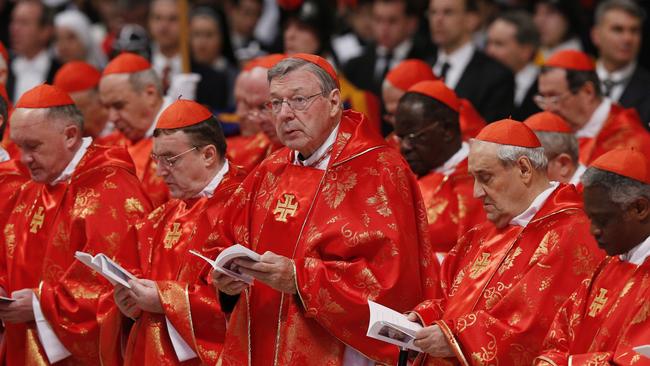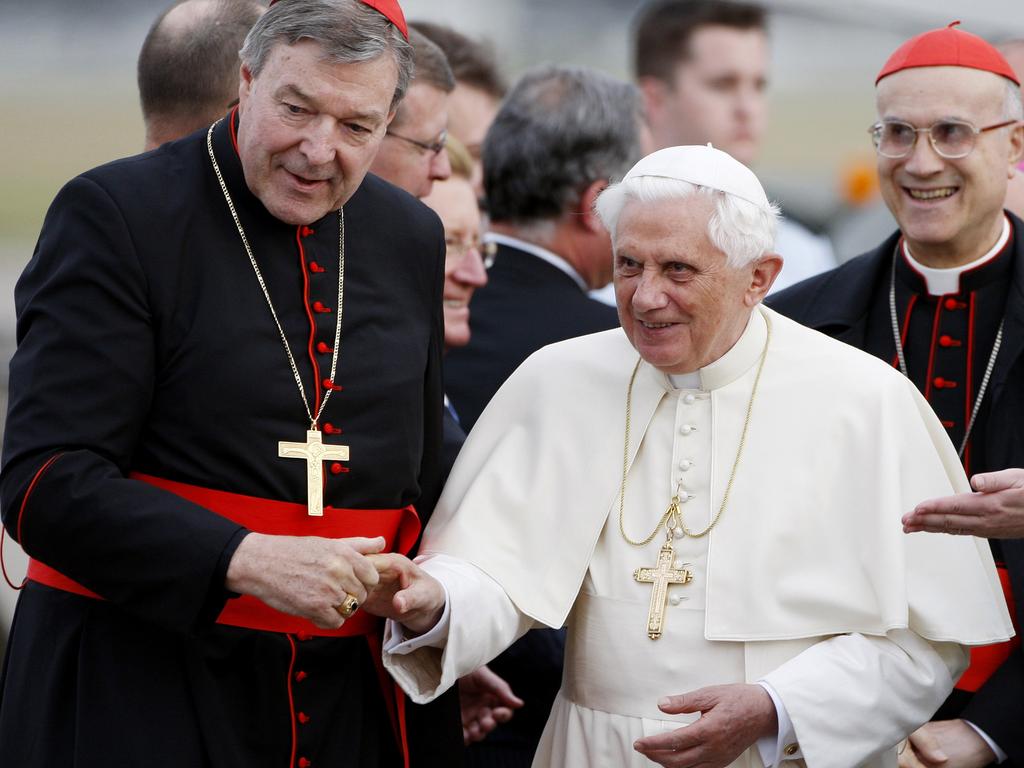Hatred, ignorance fuel ongoing media anti-Pell campaign
There is a viscerally hot hatred still extant for Australia’s most senior Catholic. It expresses itself, among other places, in unbalanced media coverage following the cardinal’s death.

Crikey’s various readers produced no evidence that the soul of the late cardinal has been condemned to the eternal flames of hell. But they made it clear there is a viscerally hot hatred still extant on this Earth for Australia’s most senior Catholic. It expresses itself, among other places, in unbalanced media coverage following the cardinal’s death.
The media pile-on against Pell was led by the ABC, Nine newspapers (The Age and The Sydney Morning Herald), the avowedly left-wing The Guardian Australia, The New Daily, The Saturday Paper and Crikey.
ABC TV’s 7.30 initially fired up the media campaign on July 27, 2016, when it devoted a whole program to a report by Louise Milligan that ran accusations that Pell had committed acts of historical child abuse against boys in Ballarat in the early 1970s and in Melbourne in the mid-1990s. As it turned out, none of the charges against Pell were upheld by the legal system.

News of Pell’s death in Rome reached Australia on the morning of January 11. That evening, 7.30 ran clips of recorded interviews with Greg Craven and David Marr. Both have legal qualifications. Craven was a friend of Pell; Marr an antagonist. Marr got over three times the coverage of Craven.
Then presenter David Speers interviewed one-time Catholic priest and former ABC presenter Paul Collins. Early on, Collins felt the need to declare: “I should admit right up front … Cardinal Pell and I were protagonists on quite a number of occasions, particularly on the ABC.” The interview went for close to six minutes. Speers did not interview any Pell supporters.
Earlier that day, ABC journalists and Pell antagonists Milligan and Paul Kennedy were interviewed by Tony Jones on Nine’s Melbourne radio station, 3AW. Kennedy admitted he became “emotional” when considering Pell’s (alleged) responses to child sexual abuse by Catholic priests and brothers. Kennedy has done an ABC TV documentary on the issue. Milligan expressed similar feelings with respect to Pell.
It was much the same with Nine’s newspapers. The Age and SMH ran editorials replete with criticism of Pell – and the latter’s letters page printed only the views of Pell antagonists. Long-time Pell critic Barney Zwartz wrote a column and an obituary on Pell in both papers.
The Age and SMH also ran an opinion piece by Melbourne-based academic Miles Pattenden, who has described himself as a recent arrival to Australia. Among other errors, Pattenden referred to “the lengths to which he (Pell) supported fellow priest and convicted pedophile Gerald Ridsdale”. Sure, Pell acknowledged he had erred in accompanying Ridsdale to court in 1993 when he first pleaded guilty to child sexual abuse. Beyond that, Pell had little contact with Ridsdale and was never his bishop or archbishop.
On January 11, The Guardian Australia ran a column by Marr who repeated allegations against Pell with which he had either not been charged or concerning which charges were dropped. The same can be said of a subsequent article by Christopher Knaus.
Meanwhile, freelance journalist Lucie Morris-Marr, whose work appears in The New Daily, tweeted shortly after she became aware of Pell’s death. She urged her followers to read a page of her book, Fallen (published before Pell’s conviction was quashed by a unanimous High Court judgment). This contained an allegation against Pell that was dropped and never went to trial.
On January 12, Crikey legal correspondent Michael Bradley ran a guilt-by-association line in repeating the old news that Pell, when a priest in Ballarat in the early 1970s, had, for around a year, shared a “house with the notorious predator Gerald Ridsdale”.
In fact, Pell and Ridsdale – among others – had a single room each in a presbytery in Ballarat East. Around the same time, journalist Paul Bongiorno – then a Catholic priest – shared presbytery accommodation for around a year with Ridsdale in Warrnambool. In May 2015, he told ABC presenter Fran Kelly he had not the faintest idea at the time that Ridsdale was a pedophile. Bradley did not mention this in his Crikey article.
Then, last weekend, The Saturday Paper ran a front-page story by Milligan titled “The child abuse cases for which George Pell was never tried”. She returned to some of the instances she cited in her 7.30 program and added others.
Milligan failed to tell readers the reason Pell was not tried on these matters turned on the fact that either Victoria Police or Victorian Director of Public Prosecutions or Victorian Magistrates Court or Victorian County Court did not believe there was sufficient evidence to secure a conviction. As I documented last week, the Royal Commission Into Institutional Responses to Child Sexual Abuse did not produce any oral or documentary evidence to support its hostile findings against Pell.
It seems Milligan has failed to heed the warning of ACT Chief Justice Lucy McCallum, in the recent case of R v Lehrmann, that there is a distinction “between an untested allegation and the fact of guilt” following a conviction after all legal avenues have been exhausted.
Soon after the publication of Milligan’s article, Melbourne University Law School’s Professor Jeremy Gans put out a long Twitter thread in which he referred to “a recurrent problem with Milligan’s journalism”. Namely, “if there are facts that don’t help her argument, she just leaves them out”.
Gans concluded his analysis by stating: “Milligan’s a gifted writer; but I don’t think she’s a good court reporter.” His comments were reported by Chris Merritt on these pages on Wednesday. So far, Milligan has not responded to Gans’s withering critique.
What’s concerning about much, but not all, of the coverage of Pell in life and now in death is that it is motivated by animus fired by ignorance. It’s a problem that goes to the soul of contemporary journalism.
Gerard Henderson is executive director of the Sydney Institute. His Media Watch Dog blog can be found at theaustralian.com.au







It appears the media pile-on against the late George Pell will continue past his death and burial. For example, last Thursday left-wing newsletter Crikey headed its “Your say” readers’ comment section as follows: “George Pell was a winner for the Catholic Church but lost his soul in the process.”